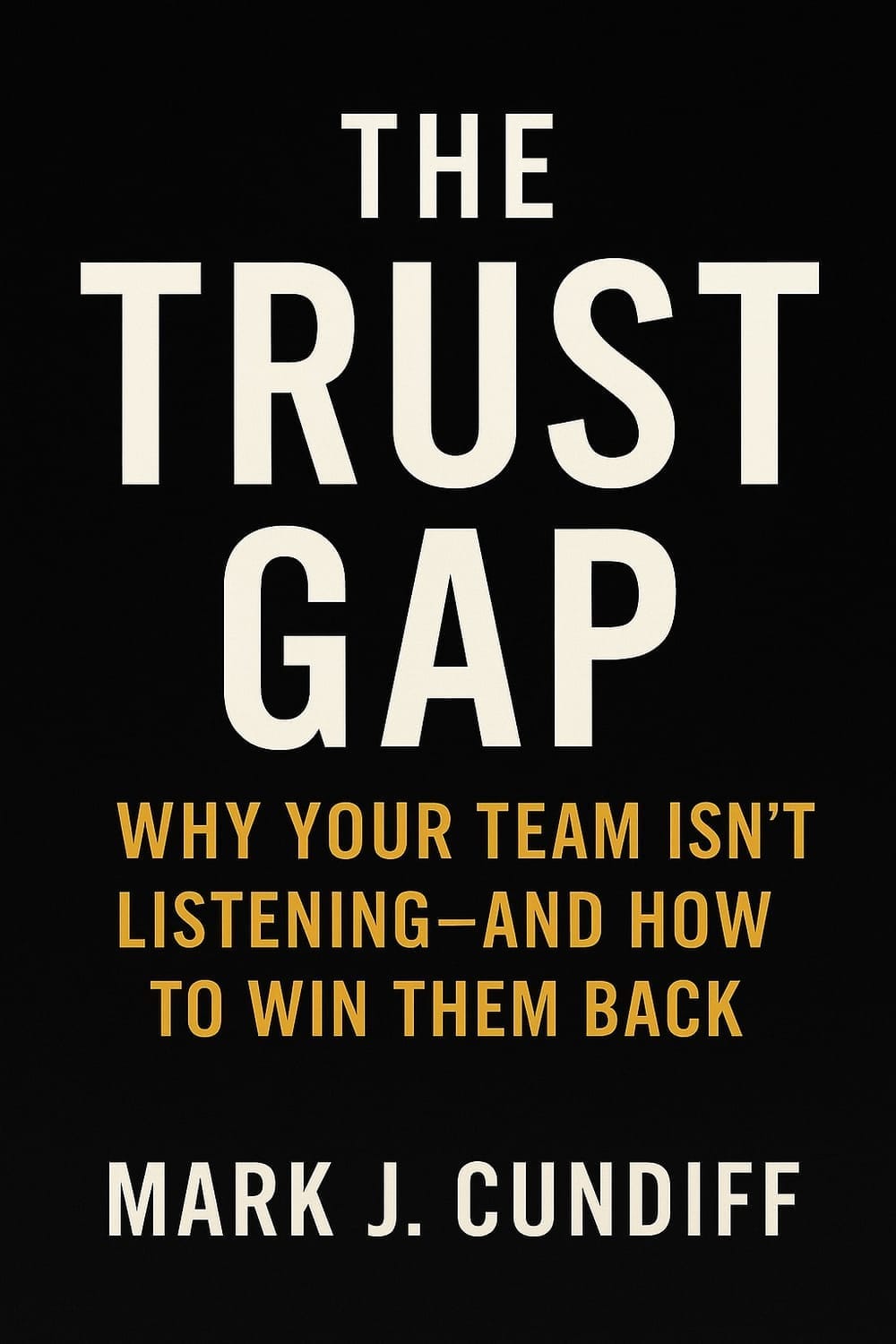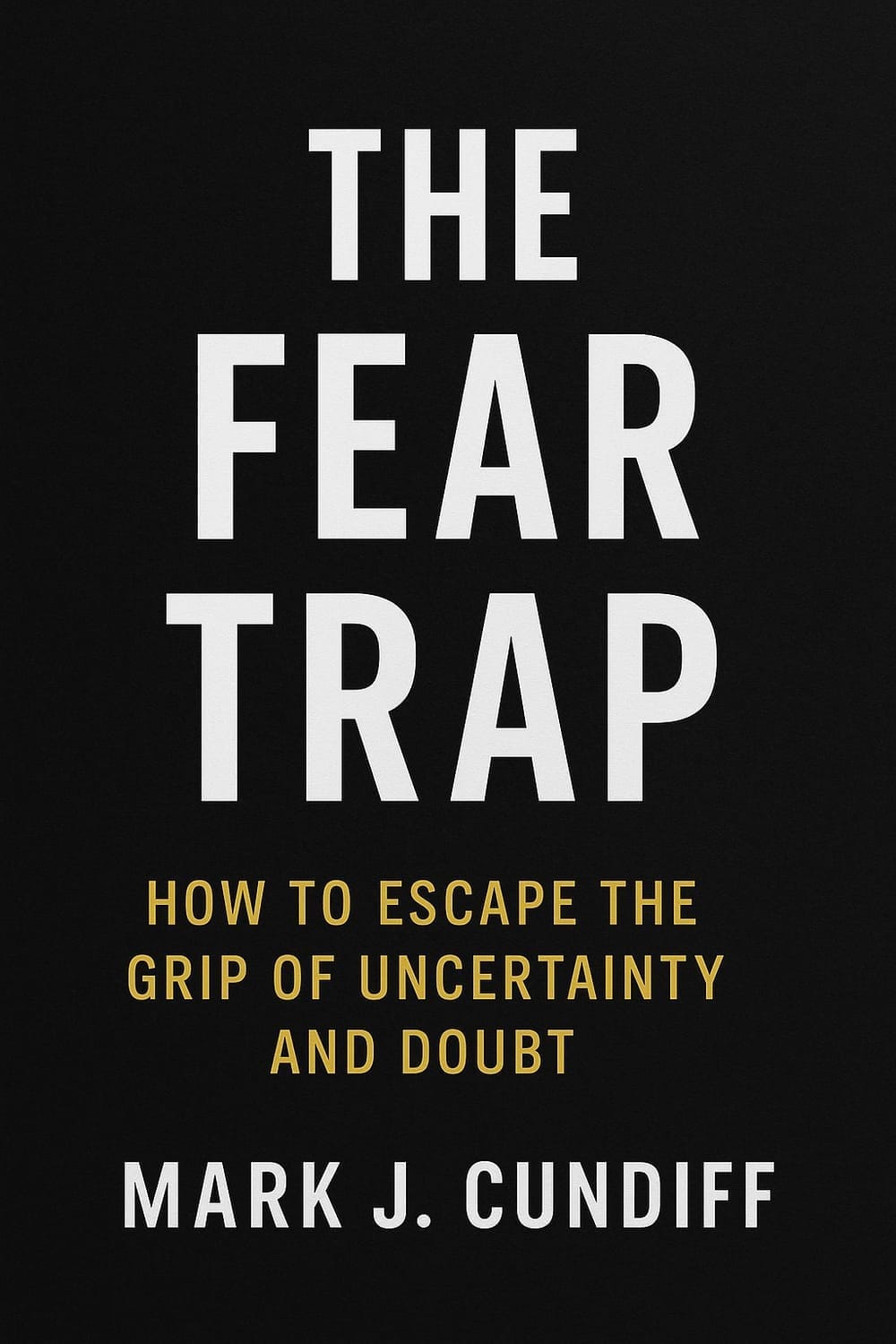3 Decisions You Must Make to Lead Yourself Well
The Mirror Challenge: Self-Leadership as the Foundation of Great Leadership
Megan stared at her computer screen, the harsh glow illuminating her exhausted face at 11:30 PM. It was her hardest time as a leader.
"Another late night," she whispered to herself. Her team had been working on the project for months and was behind schedule. Team morale dropped. Two key members requested transfers. The executive team grew impatient for results.
Megan had done everything right—or so she thought. She'd set goals, created detailed project plans, and held weekly check-ins.
She'd even implemented a new collaboration software to improve communication. Yet here they were, two weeks from the deadline with nothing substantial to show.
In a moment of desperation, she called Marcus, her longtime mentor.
"I don't get what went wrong," Megan said, sharing all the challenges they faced. "The team isn't performing, there were unexpected technical issues, and our vendor delivered late..."
After listening, Marcus asked a question that made her stop: "Megan, have you looked in the mirror?"
The question hung in the air. Megan initially felt defensive, but something in Marcus's tone made her pause.
"What do you mean?" she asked.
"Have you thought about how you’re guiding yourself in this challenge?
Have you checked if you’re living your core values?"
Are you making decisions from a place of integrity or expediency?
Are you modeling the behaviors you expect from your team?"
The hard truth slowly dawned on her. For weeks, Megan arrived late to meetings. Yet, she expected everyone else to be on time.
She'd been checking social media during team discussions while demanding full attention. She skipped meals and sleep. Her mental health got worse, so she made poor choices.
How could she expect her team to be their best when she showed up as her worst?
"I've become a poor self-leader," she admitted quietly.
"That's the first thing you need to address," Marcus replied gently. "You can't pour from an empty cup, Megan."
This tough realization was the first step to change, not just for the project, but also for Sarah's whole leadership style.
Key Takeaways from Andy Stanley on Self-Leadership
Before we dive into Andy Stanley's powerful message from Leadercast, let's look at the key insights that make good managers great leaders:
Self-leadership comes before team leadership. You can only lead others well if you first lead yourself.
Truth-telling is essential. Great self-leaders stay honest with themselves, even when it’s tough.
Values matter more than urges. Good self-leaders pick what they value most instead of what they want right now.
Community matters. We can't lead ourselves alone. We need others who share our values to hold us accountable.
Mental and physical health are key leadership issues. Your physical health and mental state affect how well you make decisions.
Self-awareness boosts decision-making. Knowing your motivations and blind spots makes you a more effective leader.
Self-Leadership: The Foundation of All Great Leadership
At the Leadercast event, Andy Stanley shared a strong message. It really connected with me: "To be a great leader, you must first lead yourself well."
The packed venue in Atlanta quieted down. Stanley shared that great self-leadership is vital for lasting influence and performance. "Great leaders endure because they know how to lead themselves well," he said.
"Leaders who are worth following are human beings who have mastered self-leadership, and it is evident in their personal lives and interactions with team members."
As John Maxwell has often said,
"Everything rises and falls on leadership."
But perhaps more accurately, everything rises and falls on self-leadership. Great leaders know that how they lead themselves in private affects their decision-making at work.
Three Critical Decisions for Effective Self-Leadership
Stanley outlined three decisions that form the foundation of good self-leadership:
1. "I will not lie to myself even when the truth makes me feel bad about myself."
"What's worse than feeling bad about yourself," Stanley challenged, "is not doing something about the thing that's bad about yourself."
This choice needs the honest truth. It might make us uneasy, but it helps us grow. Stanley suggested asking ourselves penetrating questions:
Why am I doing this, really?
Why am I postponing this, really?
Why am I saying this, really?
Why am I buying this, really?
Why am I acting like this, really?
The hardest person to be honest with is often ourselves. Yet self-leadership means acknowledging our faults and working toward our best selves.
It's not just about self-reflection now and then. It's about committing to tell the truth every day. This is key, especially when it's uncomfortable.
2. "I will prioritize what I value most over what I want to do."
"You cannot lead yourself well until you discover what you value most," Stanley explained. "Exceptional leaders lead themselves to what they value most, not what they want now!"
This decision is about opting for the ultimate over the immediate. It's about knowing the difference between what feels good now and what matches our core beliefs and values.
How do we discover what we value most? Stanley suggested a powerful exercise: reflect on what you want people to say at your funeral. This becomes your personal definition of success.
Consider what you want your family members, friends, and co-workers to say about you. Using time to reflect on these values is essential in setting clear goals that guide your leadership journey.
3. "I will not attempt to lead myself by myself."
"You can't lead yourself by yourself," Stanley insisted. This counterintuitive principle challenges the rugged individualism often associated with leadership.
Stanley explained that our friends determine the direction and quality of our lives. "Your greatest regrets were likely with friends who supported your poor decisions," he noted.
It's vital to find friends who share common values, not just interests.
Self-leadership is based on values. The values you choose shape your life's path.
One of the practical steps toward becoming an effective self-leader is finding those who share your values. This may mean cutting ties with relationships that don't match your values. It's a tough choice, but it's important for any leader who wants to grow.
The Holistic Nature of Self-Leadership
Stanley's message shows that self-leadership goes beyond just work skills. It's about developing the whole person.
True leaders who inspire others often have a deep understanding of their thoughts and emotions. Emotional intelligence begins with self-awareness.
As Peter Drucker once observed, "You cannot manage other people unless you manage yourself first." This includes maintaining both physical health and mental well-being.
Successful people know that regular exercise and mental health practices are must-haves. They are key for strong leadership, not just luxuries.
James Clear, the author of "Atomic Habits," shows that small changes can lead to big improvements over time.
These good habits help build resilience. They aid in managing outside influences and keeping focus during tough times.
Building Strong Relationships Through Authentic Leadership
When we lead ourselves well, we create a foundation for strong relationships with our team members. Authentic leadership isn't about being a perfect leader—it's about being a real human being who consistently strives to do the right thing.
Continuous learning and a growth mindset ensure real progress toward our full potential. Engaging in leadership training and lifelong learning helps us build self-leadership skills.
These skills let us handle tough times and lead others effectively.
Investing in your leadership boosts self-awareness. It also enhances your communication skills. Plus, it helps you build strong relationships that are key for effective leadership.
The Impact of Good Self-Leadership
Great leadership begins with strong self-leadership. I learned this from my own experience and Andy Stanley at Leadercast.
When we make better decisions for ourselves, we make better decisions for our teams. When we align our actions with our core values, we create environments where others can thrive.
The journey to becoming a better leader isn't about acquiring more power or authority. It's about the hard work of leading yourself well in a single day, and then doing it again the next day, and the next.
It's about making the right decisions at the right time, even when no one is watching.
In the words of Lao Tzu, "The journey of a thousand miles begins with one step." If you want to make a real impact as a leader, start by looking in the mirror. Commit to leading yourself well.
The bottom line is this: You cannot take others where you have not gone yourself. The true power of leadership begins with self-leadership.
What step will you take today to become a better self-leader?
Frequently Asked Questions About Self-Leadership
What's the difference between self-leadership and self-management?
Self-management means organizing tasks, managing time, and controlling your actions to meet goals. Self-leadership goes deeper, addressing your core values, motivations, and personal growth.
It's not just about what you do but who you are becoming. While self-management helps you complete tasks, self-leadership shapes your character and long-term influence.
How can I improve my self-leadership when I'm going through a hard time?
During challenging periods, focus first on your mental well-being and physical health. Get back to good habits that bring stability.
Focus on regular exercise, enough sleep, and healthy eating. Lean on your support network of people who share your values.
Practice positive self-talk while being honest about areas that need improvement. How you handle tough times shapes your ability to lead in the future.
Can someone be in a leadership position without being a good self-leader?
Yes, but not sustainably or effectively. Many people occupy leadership positions without practicing good self-leadership.
They may get quick results from their position, but they rarely build lasting loyalty or strong relationships with their team.
As John Maxwell teaches, "Leadership is influence, nothing more, nothing less." True influence requires consistent self-leadership that builds trust over time.
How does emotional intelligence relate to self-leadership?
Emotional intelligence and self-leadership are deeply interconnected. Self-awareness means knowing your feelings.
Self-regulation is about managing those feelings well. Both are essential parts of emotional intelligence. Developing emotional intelligence boosts your self-leadership.
You make better decisions based on values, not just fleeting feelings. Emotional maturity helps you connect authentically with others. This strengthens your leadership effectiveness.
What practical steps can I take to become a better self-leader in a single day?
Start with a morning reflection on your core values and how they'll guide your decisions that day. Practice intentional pauses before responding to challenges, asking yourself, "Why am I reacting this way, really?"
Make one decision that prioritizes your long-term values over short-term desires. Connect with someone who shares your values and can provide perspective.
End the day by acknowledging both victories and failures in your self-leadership journey. Remember, the goal isn't perfection but continuous learning and growth.
Join over 3,900 Fellow Leaders reading The Learning To Lead Newsletter each week!
Recent Articles

Join over 4,000 Fellow Leaders reading The Learning To Lead Newsletter each week!
©2025 Learning To Lead | Helping Good Leaders Become Great Leaders


